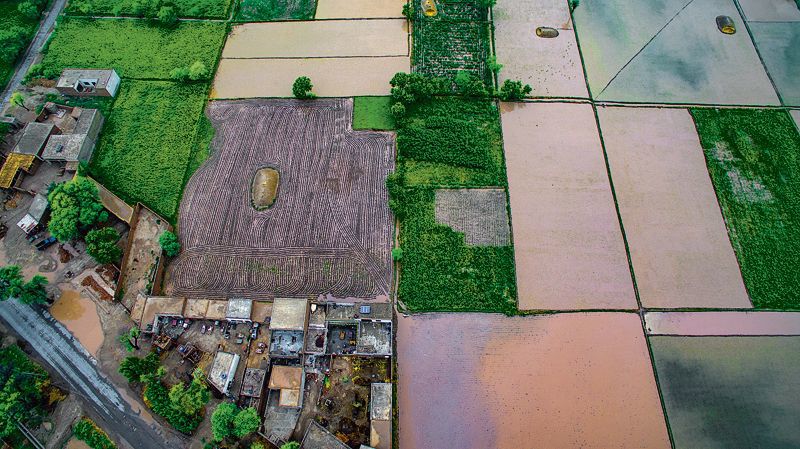Onus on Punjab to reform land leasing ecosystem
THE agricultural land lease market in Punjab has witnessed phenomenal growth and expansion. It covers all agro-climatic zones, districts, principal crops and classes of landholders. It has been the outcome of cumulative pressure and interaction among endogenous and exogenous forces, such as high-end mechanisation, commercialisation, technological advancements, assured public procurement, support prices, extensive market network and overall modernisation of the state agricultural system. The land tenurial system in the state changed drastically with the advancement of agriculture as compared to the official programme of land reforms, which basically remained confined to ownership ceiling, abolition of intermediaries, grant of occupancy rights to ‘tenants at will’ and consolidation of fragmented holdings. The land reforms, as envisaged and implemented in the initial decades of agrarian reforms, gradually became redundant, and land relations adjusted to the market-driven system of production.
The private-cum-individualised ownership of cultivable land got a firm rooting in the state. Farm households, as private producers, took production decisions anchored in the market principle of profit maximisation. This required scaling up the size of the holding, and hence, land leasing emerged as the only viable and handy option. The centuries-old practice of share cropping or in-kind tenancy vanished from the agrarian scene of the state. The institution of land tenancy off-loaded its feudalistic/semi-feudalistic/social embeddedness. The traditional practice of lease-in by marginal farmers/resource-poor peasants/pure tenants from big landlords for the purpose of survival or subsistence ended in due course.
A new form of commercial/capitalistic/reverse tenancy has gained ground. It is a market-driven venture spearheaded by enterprising farmers who ‘lease in’ land from other classes of landholders. These are essentially middle-sized farmers with a comprehensive set of farming, organisational, managerial and supervisory skills and deep connections in the input, credit and labour markets.
The supply of land for the purpose of leasing out is on the rise due to a number of factors — discontinuation of ‘self-cultivation’ by a good number of farm households, settling of families in the urban vicinity, emigration to other countries, less availability of able-bodied persons for handling agricultural operations, adoption of non-farming occupations, joining the services sector, etc.
Land leasing involves getting access to land through a lease contract which bestows economic ownership, not proprietary ownership, on the lessee on the basis of mutually agreed terms and conditions. This results in the transfer and use of physical assets for an economic consideration. Thus, a lease is a transfer of an asset for a limited time in return for a periodic payment called rent. In the economic context, the terms rent and lease imply the same thing but for a difference in the duration — the former is for a shorter duration and the latter for a longer one. Lease agreements, if written and duly registered, are regulated by the lease contract, which spells out the obligations and rights of the parties concerned, and hence are enforceable.
In 2015, the NITI Aayog constituted an expert committee on land leasing under the chairmanship of T Haque. Subsequently, the committee submitted the draft of the Model Agricultural Land Leasing Act, 2016. The Act argued for the legalisation of land leasing to ensure security of land ownership rights for landowners and security of tenure for tenants, and automatic resumption of land after the expiry of the lease tenure to remove the problem of adverse possession. The prioritisation of possession over ownership is held as the root cause of criminal activities related to properties, including those of NRIs.
For the purpose of modernising the tenancy laws in Punjab, the state Department of Revenue, Rehabilitation and Disaster Management constituted the five-member Revenue Commission under the chairmanship of Justice SS Saron, a retired judge of the Punjab and Haryana High Court, in February 2018. The commission drafted the Punjab Land Leasing and Tenancy Bill, 2019, for determining the owners/lessors and lessees’ rights and obligations towards each other in a fair and justifiable manner, and without impacting the proprietary and ownership rights of the owners of the land while giving their lands on lease.
In July 2019, the state cabinet decided to refer the Bill to a cabinet sub-committee headed by the Finance Minister and having the social security and revenue ministers as members. The commission answered in detail the questions raised by the sub-committee and concluded that “in the circumstances, it would be in the fairness of all and a feather in the cap of Punjab to be a pioneer in the field of enactment of a land leasing and tenancy legislation; besides, this would entail financial incentives to the state”. The commission observed that the restrictions on lease holdings resulted in concealed tenancy, and informal tenants were more insecure.
The tenancy market in the state has been operating on an annual basis in the rental mode with oral contracts and cash deals, which obstruct capital formation in the farm sector. The informal tenant has no long-term interest and incentive to make any durable investment in rented land. And it is not possible to raise formal credit, get compensation for crop damage, receive official payment for selling the produce, avail government schemes and subsidies, and undertake risky ventures for producing high-value crops beyond the ambit of the MSP regime. An overwhelming number of informal tenants depend upon commission agents/money-lenders and landowners for undertaking agricultural operations. The situation demands the creation of an enabling framework to promote ‘professional tenancy’ through long-term written and registered leasing contracts, based on proper incentivisation, hassle-free functioning with a stipulated entry and exit framework. This has been the rationale and vision articulated by the Revenue Commission in its final draft Punjab Land Leasing and Tenancy (Safeguarding Rights and Enforcing Liabilities of Lessor and Lessee) Bill, 2021; this needs to be further taken up to formalise the long-term land lease market for the next-level transformation of the agriculture sector in the state.









